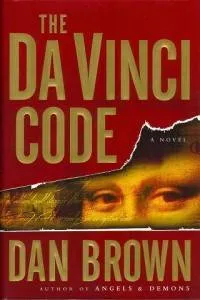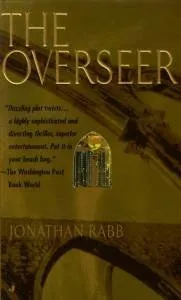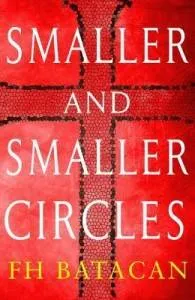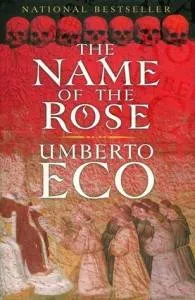
Genre Kryptonite: Academics Down the Rabbit Hole
This content contains affiliate links. When you buy through these links, we may earn an affiliate commission.
I love reading about academics who end up in the middle of conspiracy theories or obsessive hunts for serial killers. Blame it on the university scene at the beginning of Raiders of the Lost Ark. Dr. Henry Walton “Indiana” Jones, Jr., played by Harrison Ford, is resplendent in tweed and a charming pair of eyeglasses. He enters the movie as the most popular archaeology professor among hormonal college students, but he is quickly drafted into a race to discover the ark of the covenant, with the Nazis hot on his heels. I’ve somehow imprinted on this particular sequence, because genteel academics threatened with murder and mayhem have appealed to me ever since.
While there are swathes of mysteries and adventure stories about scholar-explorers, what I enjoy the most are scenarios where protagonists feel the claustrophobia and panic of having everything happening at once. Dealing with thesis consults while fleeing for your life is an amazing study in contrasting concerns. I have only the briefest experience of it as an undergrad, but I know how it feels to wish that Freemasons are actually trying to kill you, just to have a valid excuse for missing the deadline of you Comp Lit paper.
 The most popular example of this genre is, of course, Dan Brown and his symbologist Robert Langdon. All the poor professor wants to do is enjoy himself gallivanting around Europe, but he keeps getting besieged by alluring European women and conspiracy theories involving the Roman Catholic Church!
The distance between me and the seventeen-year old who read both The Da Vinci Code and Angels and Demons at a clip is a wide one now, and my attempt to read him again has been thwarted by my dissatisfaction with the prose. But still, I can recall the heady pleasure I got from the reading experience. I even went so far as to design several ambigrams for my name, like I was part of the Illuminati. Yep, I was that far into it.
The most popular example of this genre is, of course, Dan Brown and his symbologist Robert Langdon. All the poor professor wants to do is enjoy himself gallivanting around Europe, but he keeps getting besieged by alluring European women and conspiracy theories involving the Roman Catholic Church!
The distance between me and the seventeen-year old who read both The Da Vinci Code and Angels and Demons at a clip is a wide one now, and my attempt to read him again has been thwarted by my dissatisfaction with the prose. But still, I can recall the heady pleasure I got from the reading experience. I even went so far as to design several ambigrams for my name, like I was part of the Illuminati. Yep, I was that far into it.
 One underread novel about professors who get targeted for knowing old manuscripts is Jonathan Rabb’s The Overseer. I was a big Niccolo Machiavelli fangirl in high school (don’t ask) so I got a real kick out of this story that involves a long-suppressed 16th century treatise that can be used as a blueprint for world domination. One of the protagonists here is a professor in Columbia, and I really enjoyed the parts that discussed political theory of Renaissance Italy, as well as the actual (fictional) treatise appended at the back of the novel. The more espionage-related parts of the story struck me as basic, but it still successfully delivered on the thrills.
Foucault’s Pendulum by Umberto Eco, on the other hand, is about an Italian university student and his friends as they get caught up in a conspiracy theory of their own making. There’s a denseness to the narrative that might put off some readers, but somehow this quality in Eco’s writing has endeared him more to me. His random facts about Kabbalah and the Knights Templar just wash over me like water.
One underread novel about professors who get targeted for knowing old manuscripts is Jonathan Rabb’s The Overseer. I was a big Niccolo Machiavelli fangirl in high school (don’t ask) so I got a real kick out of this story that involves a long-suppressed 16th century treatise that can be used as a blueprint for world domination. One of the protagonists here is a professor in Columbia, and I really enjoyed the parts that discussed political theory of Renaissance Italy, as well as the actual (fictional) treatise appended at the back of the novel. The more espionage-related parts of the story struck me as basic, but it still successfully delivered on the thrills.
Foucault’s Pendulum by Umberto Eco, on the other hand, is about an Italian university student and his friends as they get caught up in a conspiracy theory of their own making. There’s a denseness to the narrative that might put off some readers, but somehow this quality in Eco’s writing has endeared him more to me. His random facts about Kabbalah and the Knights Templar just wash over me like water.
 Another subset of this genre is the academically inclined who becomes obsessed with catching wily serial killers, forcing them to use their academic abilities in their pursuit. Smaller and Smaller Circles by FH Batacan (available in August 2015), Father Gus Saenz and Jerome Lorenzo are Jesuit priests who also teach forensic anthropology at a private university in Manila. They end up being embroiled in an investigation of a series of gruesome child murders at the Payatas slum.
I enjoyed the contrast between the fairly privileged life of these two academics and their increasing frustration with the state of police procedure in the Philippines, where there is a lack of resources and know-how needed to pursue a methodical criminal.
Another subset of this genre is the academically inclined who becomes obsessed with catching wily serial killers, forcing them to use their academic abilities in their pursuit. Smaller and Smaller Circles by FH Batacan (available in August 2015), Father Gus Saenz and Jerome Lorenzo are Jesuit priests who also teach forensic anthropology at a private university in Manila. They end up being embroiled in an investigation of a series of gruesome child murders at the Payatas slum.
I enjoyed the contrast between the fairly privileged life of these two academics and their increasing frustration with the state of police procedure in the Philippines, where there is a lack of resources and know-how needed to pursue a methodical criminal.
 Finally, I’d like to talk about my favorite novel from this hodgepodge of a genre. Umberto Eco is the writer that has most satisfied this part of my reading life. I seldom reread books, but I’ve reread The Name of the Rose twice so far, and even though I already know all the twists, I still manage to get something from it after every read. It’s the story of a pair of medieval monks who are tasked with solving a series of murders in a Benedictine Abbey. It is also a story about the Inquisition, and how the desire to possess or conceal knowledge can lead to murder. Like Foucault’s Pendulum, it’s quite dense and filled with blind alleys, but I’m in awe of the way Eco successfully married genre fiction and esoterica.
Finally, I’d like to talk about my favorite novel from this hodgepodge of a genre. Umberto Eco is the writer that has most satisfied this part of my reading life. I seldom reread books, but I’ve reread The Name of the Rose twice so far, and even though I already know all the twists, I still manage to get something from it after every read. It’s the story of a pair of medieval monks who are tasked with solving a series of murders in a Benedictine Abbey. It is also a story about the Inquisition, and how the desire to possess or conceal knowledge can lead to murder. Like Foucault’s Pendulum, it’s quite dense and filled with blind alleys, but I’m in awe of the way Eco successfully married genre fiction and esoterica.
 The most popular example of this genre is, of course, Dan Brown and his symbologist Robert Langdon. All the poor professor wants to do is enjoy himself gallivanting around Europe, but he keeps getting besieged by alluring European women and conspiracy theories involving the Roman Catholic Church!
The distance between me and the seventeen-year old who read both The Da Vinci Code and Angels and Demons at a clip is a wide one now, and my attempt to read him again has been thwarted by my dissatisfaction with the prose. But still, I can recall the heady pleasure I got from the reading experience. I even went so far as to design several ambigrams for my name, like I was part of the Illuminati. Yep, I was that far into it.
The most popular example of this genre is, of course, Dan Brown and his symbologist Robert Langdon. All the poor professor wants to do is enjoy himself gallivanting around Europe, but he keeps getting besieged by alluring European women and conspiracy theories involving the Roman Catholic Church!
The distance between me and the seventeen-year old who read both The Da Vinci Code and Angels and Demons at a clip is a wide one now, and my attempt to read him again has been thwarted by my dissatisfaction with the prose. But still, I can recall the heady pleasure I got from the reading experience. I even went so far as to design several ambigrams for my name, like I was part of the Illuminati. Yep, I was that far into it.
 One underread novel about professors who get targeted for knowing old manuscripts is Jonathan Rabb’s The Overseer. I was a big Niccolo Machiavelli fangirl in high school (don’t ask) so I got a real kick out of this story that involves a long-suppressed 16th century treatise that can be used as a blueprint for world domination. One of the protagonists here is a professor in Columbia, and I really enjoyed the parts that discussed political theory of Renaissance Italy, as well as the actual (fictional) treatise appended at the back of the novel. The more espionage-related parts of the story struck me as basic, but it still successfully delivered on the thrills.
Foucault’s Pendulum by Umberto Eco, on the other hand, is about an Italian university student and his friends as they get caught up in a conspiracy theory of their own making. There’s a denseness to the narrative that might put off some readers, but somehow this quality in Eco’s writing has endeared him more to me. His random facts about Kabbalah and the Knights Templar just wash over me like water.
One underread novel about professors who get targeted for knowing old manuscripts is Jonathan Rabb’s The Overseer. I was a big Niccolo Machiavelli fangirl in high school (don’t ask) so I got a real kick out of this story that involves a long-suppressed 16th century treatise that can be used as a blueprint for world domination. One of the protagonists here is a professor in Columbia, and I really enjoyed the parts that discussed political theory of Renaissance Italy, as well as the actual (fictional) treatise appended at the back of the novel. The more espionage-related parts of the story struck me as basic, but it still successfully delivered on the thrills.
Foucault’s Pendulum by Umberto Eco, on the other hand, is about an Italian university student and his friends as they get caught up in a conspiracy theory of their own making. There’s a denseness to the narrative that might put off some readers, but somehow this quality in Eco’s writing has endeared him more to me. His random facts about Kabbalah and the Knights Templar just wash over me like water.
 Another subset of this genre is the academically inclined who becomes obsessed with catching wily serial killers, forcing them to use their academic abilities in their pursuit. Smaller and Smaller Circles by FH Batacan (available in August 2015), Father Gus Saenz and Jerome Lorenzo are Jesuit priests who also teach forensic anthropology at a private university in Manila. They end up being embroiled in an investigation of a series of gruesome child murders at the Payatas slum.
I enjoyed the contrast between the fairly privileged life of these two academics and their increasing frustration with the state of police procedure in the Philippines, where there is a lack of resources and know-how needed to pursue a methodical criminal.
Another subset of this genre is the academically inclined who becomes obsessed with catching wily serial killers, forcing them to use their academic abilities in their pursuit. Smaller and Smaller Circles by FH Batacan (available in August 2015), Father Gus Saenz and Jerome Lorenzo are Jesuit priests who also teach forensic anthropology at a private university in Manila. They end up being embroiled in an investigation of a series of gruesome child murders at the Payatas slum.
I enjoyed the contrast between the fairly privileged life of these two academics and their increasing frustration with the state of police procedure in the Philippines, where there is a lack of resources and know-how needed to pursue a methodical criminal.
 Finally, I’d like to talk about my favorite novel from this hodgepodge of a genre. Umberto Eco is the writer that has most satisfied this part of my reading life. I seldom reread books, but I’ve reread The Name of the Rose twice so far, and even though I already know all the twists, I still manage to get something from it after every read. It’s the story of a pair of medieval monks who are tasked with solving a series of murders in a Benedictine Abbey. It is also a story about the Inquisition, and how the desire to possess or conceal knowledge can lead to murder. Like Foucault’s Pendulum, it’s quite dense and filled with blind alleys, but I’m in awe of the way Eco successfully married genre fiction and esoterica.
Finally, I’d like to talk about my favorite novel from this hodgepodge of a genre. Umberto Eco is the writer that has most satisfied this part of my reading life. I seldom reread books, but I’ve reread The Name of the Rose twice so far, and even though I already know all the twists, I still manage to get something from it after every read. It’s the story of a pair of medieval monks who are tasked with solving a series of murders in a Benedictine Abbey. It is also a story about the Inquisition, and how the desire to possess or conceal knowledge can lead to murder. Like Foucault’s Pendulum, it’s quite dense and filled with blind alleys, but I’m in awe of the way Eco successfully married genre fiction and esoterica.












